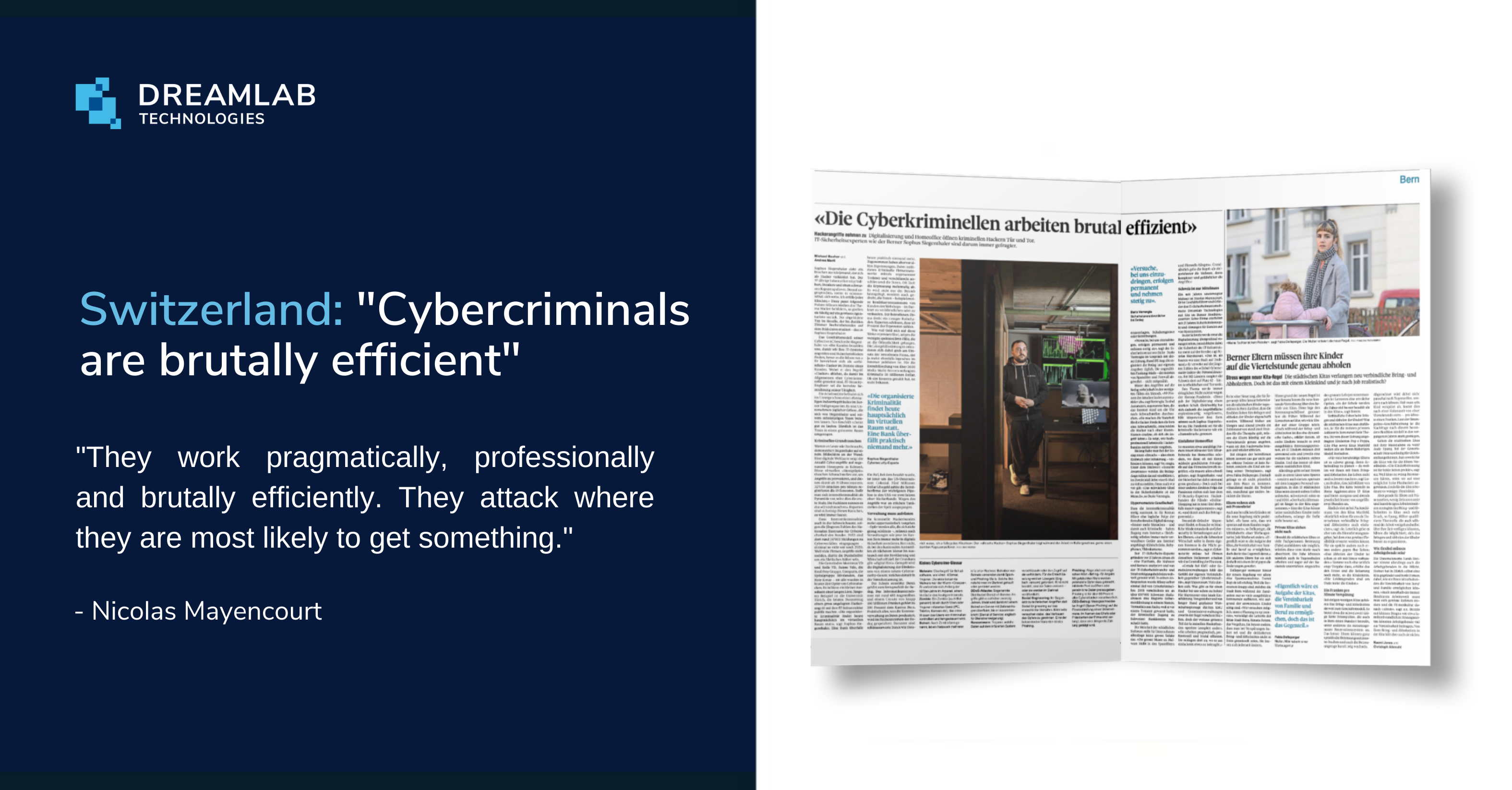
As the digitalisation of companies and homes increases, hackers are growing in number. As a result, IT security experts are in great demand.
The latest figures from the Swiss National Cyber Security Centre show that cybercrime is also booming in Switzerland. In 2022, 34,000 reports of cyber incidents were received – three times as many as in 2020. Because many companies do not report attacks, this figure is probably just the tip of the iceberg when it comes to unreported cases.
Many organisations and municipalities have recently been victims of cyberattacks: Montreux VD and Rolle VD, Suisse Velo, the Emil Frey Group, Comparis, the Hirslanden hospital group, the Red Cross and most recently, the University of Zurich, who announced last Thursday that it had been a victim of a large-scale hacker attack on its IT infrastructure.
Nicolas Mayencourt, has been a constant reminder of the increasing threats: ¬ЂIn Switzerland, digitalisation is being promoted across the board, but security of IT infrastructure usually gets overlooked. It’s like building a city on quicksand.» He refers to the latest figures from the «Global Cybersecurity Index» of the Telecommunications Union, which ranks Switzerland 42nd out of 182 countries – behind Azerbaijan and Tanzania. вАЬThe issue is becoming increasingly urgent. The threat landscape has been given a strong boost by the Corona pandemic. At the same time, the attack surface has exploded. ¬ї
Mayencourt believes that there should be minimum standards for cyber security in all administrations, at all levels. «In its own interest, the Swiss economy should also be held accountable. Organisations should treat cybersecurity as seriously as financial controls.¬ї
«SMEs and local authorities lack awareness of their vulnerability to cybercrime.» continues Mayencourt. Thinking that hackers are not particularly interested in your organisation can be a fatal assessment. SMEs and municipal administrations are usually spared from targeted and well-planned economic espionage, but the vast majority of criminal hacker gangs operate in a completely different way. «They work pragmatically, professionally and brutally efficiently. They attack where they are most likely to get something.¬ї

